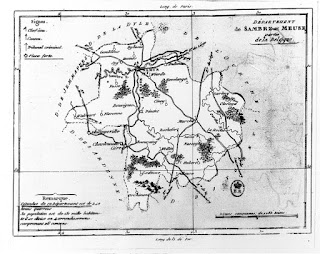Friday, July 14, 2017
Zo Elliot (1891-1964) - - British Eighth
Alonzo Elliot, Jr., was born May 25, 1891, in Manchester, New Hampshire. He grew up in Brookhurst, New Hampshire. After finishing at St. Paul's School in Concord, New Hampshire, and Phillips Academy in Andover, Massachusetts, he earned his BA at Yale, then did additional study at Cambridge (Trinity College) and the Columbia Law School in New York City. He also studied music at the American Conservatory in Paris. Some of his music teachers included Nadia Boulanger, Leonard Bernstein, Robert Zeller, Willy de Sadler, and Harry Wittemore. While at Yale, he wrote musical plays. Zo was, for the most part, a popular song writer. His most popular work was, "There's a Long, Long Trail," which was popular during World War I. Zo wrote the music. The words were written by Stoddard King (1889-1933). Some of the other songs he wrote include: "Tulips," "Captain of the Crew", "Wait for Me", "There's a Wee Cottage on a Hillside", "The World Was Made for You and Me", "In the Heart of Paradise", "Enchanted River", "Bluebird", and "Oh! Oh! Abdullah".
.
Zo had a keen interest in military music. He wrote an opera entitled Top Sergeant and did a detailed study on the song, "John Brown's Body." What he discovered was the John Brown in that song was not the Virginia abolitionist but rather a Union soldier who died on the battlefield.
.
British Eighth was written to commemorate General Bernard Montgomery and the Eighth Army (of the British Army). The march, his only one, was composed in 1943 for publication in 1944. The publisher was Carl Fischer of New York. The first bands to play it were U.S. military bands. When printed programs were used, the description of the British Eighth march stated that Zo Elliott was an English composer who moved to New England after studies at Cambridge (they didn't get the part that he was born and grew up in New Hampshire!) Zo said that he chose the title for the march carefully, "If I was an English composer, I would have simply called the march 'The Eighth Army.' Since I knew Americans would be the first to play it, I made it British Eighth. But it should never be thought of as a British march. I am an American." And it was popular with British military bands later in 1944. There was no confusion there as to the march's nationality in the U.K. It was published in New York City. (However, his one popular World War I hit, "There's a Long, Long Trail" was published in London in 1914 and nowhere else.) The English poet John Masefield (1878-1967) wrote words for British Eighth, which could have added even more confusion. After all, he was the King's poet laureate.
.
.
Zo Elliott died on his 73rd birthday at the Gaylord Farm Hospital in Wallingford, Connecticut, on May 25, 1964.
Subscribe to:
Post Comments (Atom)
Le Regiment de Sambre-et-Meuse - - the march better known as French National Defile...
Sambre-et-Meuse was a department of the First French Empire named for the Sambre and Meuse Rivers. The capital of the department was Namur. ...

-
Frederick Joseph Ricketts was born February 21, 1881, on the East Side of London. His father was a coal merchant. He died when Joe (that...
-
When John Philip Sousa thought up of the idea of the sousaphone he wanted a huge TUBA that would be portable and could be played in any ...
-
My name is Billy Jack Long but most of my friends call me Bill. I live in the little desert town of Needles, California. For most of my l...





No comments:
Post a Comment